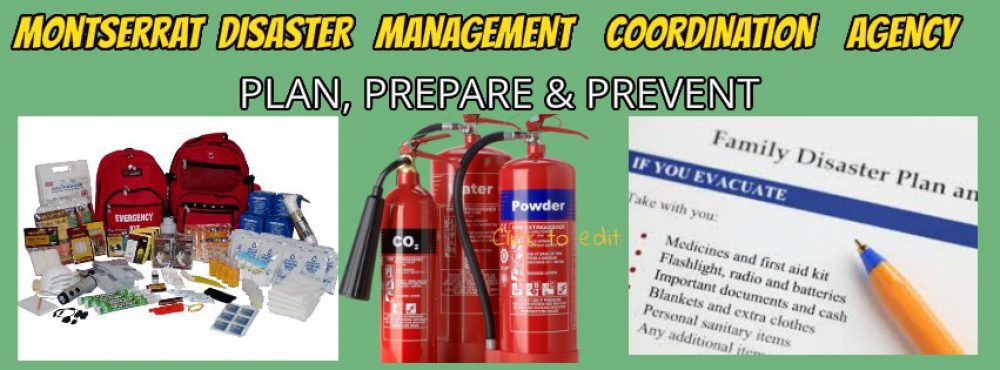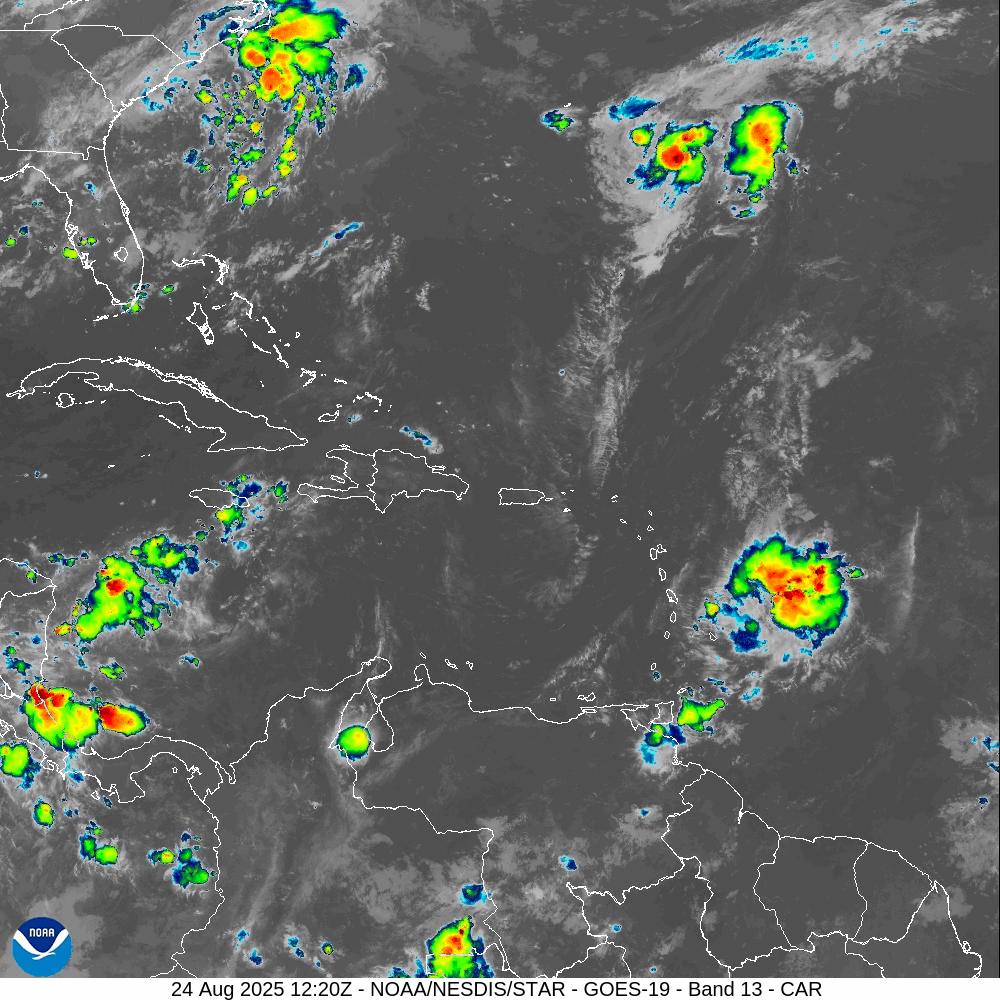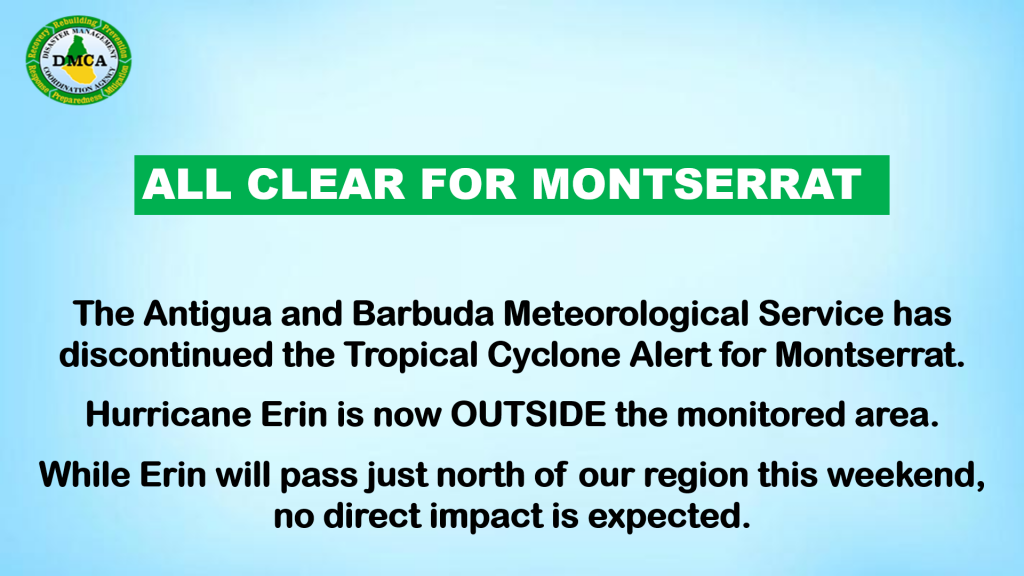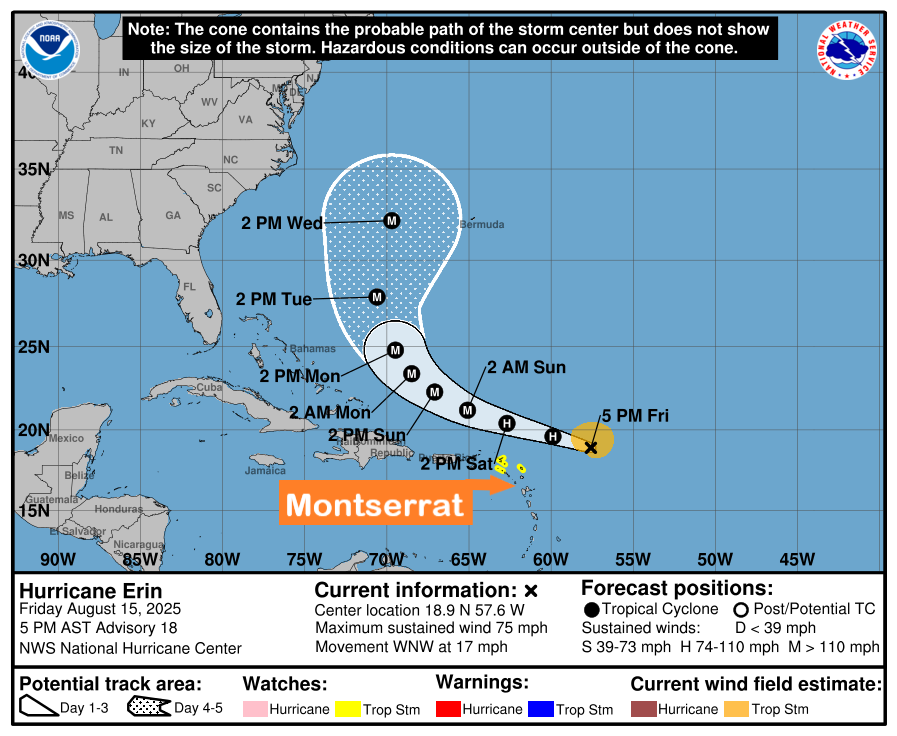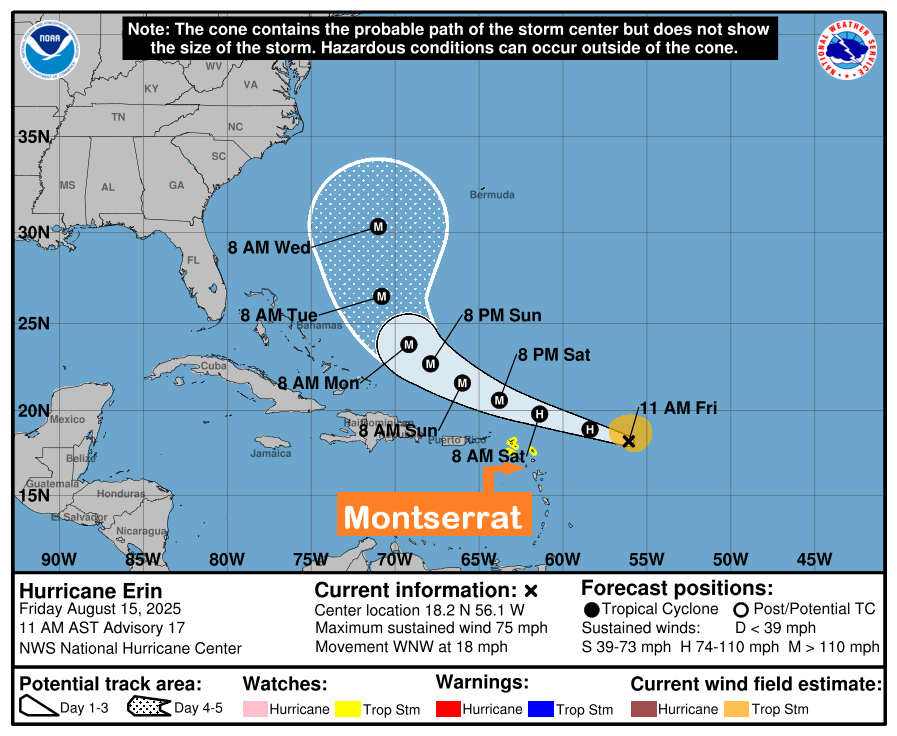In its Tropical Cyclone Information Statement issued at 3:00 p.m. on Tuesday, September 2, 2025, the Met Service reported that an active tropical wave over the eastern tropical North Atlantic has a high chance of developing into a tropical depression or storm later this week or weekend, as it moves generally westward toward the region.
At this early stage, it remains unclear if or when the system will develop or whether it will impact the northeast Caribbean. Interests in Montserrat should closely monitor its progress.
Residents are reminded to remain vigilant and prepared throughout the remainder of the hurricane season.
At 2:00 p.m., the tropical wave of interest was centered about 2,340 miles east-southeast of Antigua and Barbuda and the Leeward Islands, moving slowly westward.
Based on ASCAT data, maximum sustained winds were around 25 mph with higher gusts.
? Formation Chances
Next 48 hours: Low (30%)
Next 7 days: High (70%)
This means development in the short term is unlikely, but the likelihood significantly increases over the next week.
Please note: There are no tropical cyclone alerts, watches, or warnings in effect for the area, and none may be required at this time.

? The next update will be issued around 2:00 p.m. tomorrow, or sooner if necessary.
Forecaster: Dale Destin
